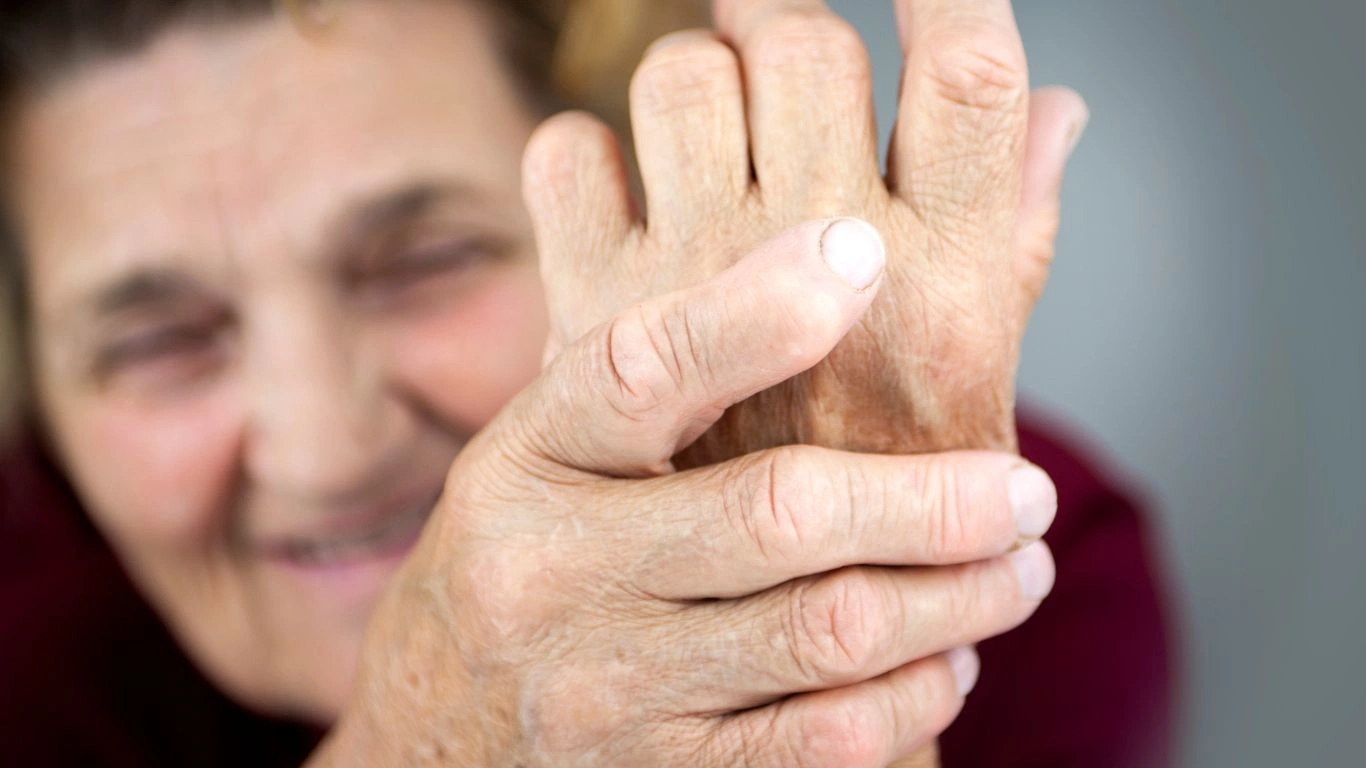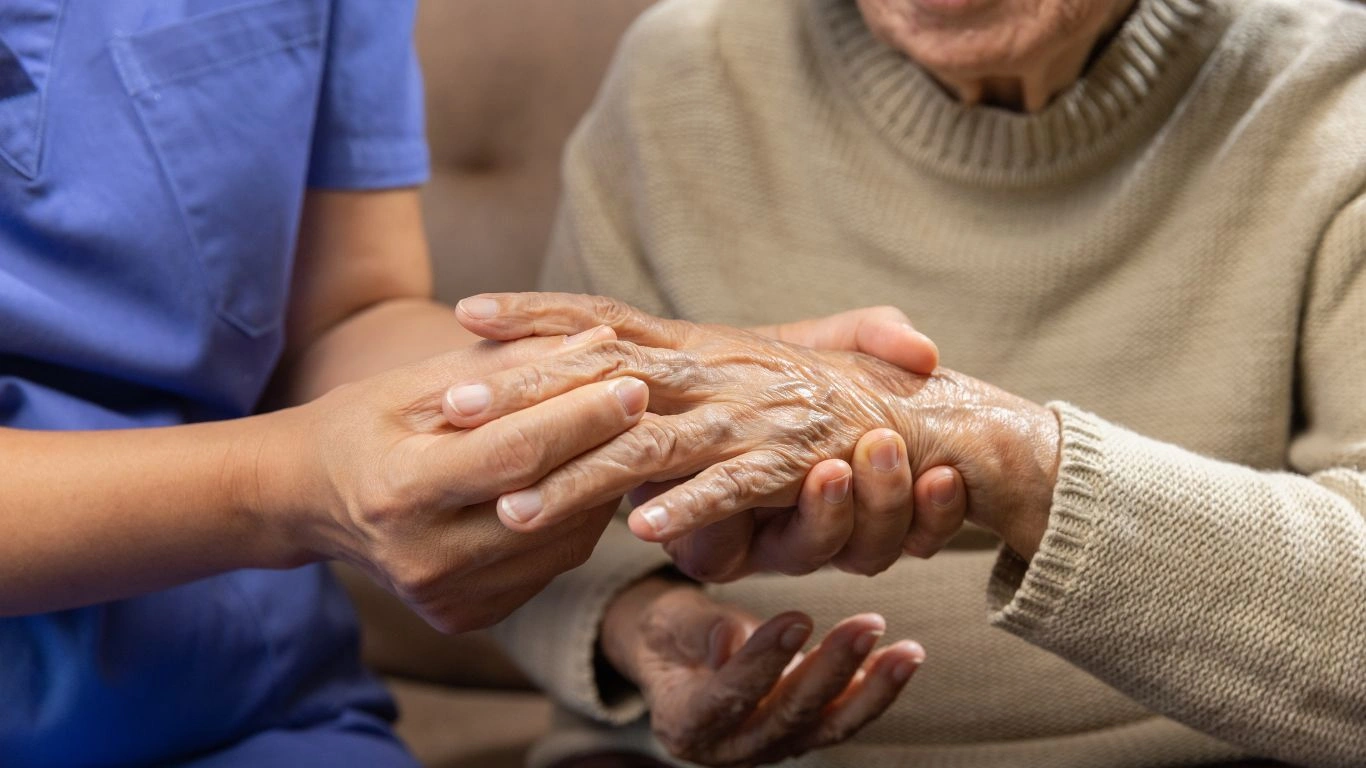How Rheumatoid Arthritis Affects Sleep Patterns & Pain Management
Living with rheumatoid arthritis (RA) is challenging in many ways, but one aspect that doesn’t always get enough attention is how it can affect your sleep. As someone who has worked extensively with individuals diagnosed with RA, I’ve seen firsthand how this condition can disrupt not only your physical well-being but your ability to get a good night’s rest. In fact, a significant number of people with RA report having trouble falling asleep, staying asleep, or both. The impact of poor sleep goes far beyond just feeling tired the next day; it can make your symptoms worse, lower your quality of life, and even hinder your ability to manage the condition effectively.
How Rheumatoid Arthritis Affects Sleep Patterns

When most people think of rheumatoid arthritis, they immediately associate it with joint pain, stiffness, and inflammation. However, RA also wreaks havoc on your sleep patterns, making it a much more complex condition than it first appears. But what exactly is going on when RA interferes with your ability to sleep? Let’s break it down.
The Pain Factor: How RA Joint Pain Makes It Hard to Sleep
If you’ve ever had a bad night’s sleep due to joint pain, you already know how frustrating it can be. The pain associated with RA can be so severe that it prevents you from getting into a comfortable position or staying in one for too long. This pain often worsens at night when the body is at rest, which may be due to decreased circulation or a shift in inflammation levels while you sleep. It’s almost like your body decides to turn the volume up on the discomfort as soon as you lie down.
In my experience, many of my patients report waking up multiple times throughout the night, struggling to find a position that alleviates the discomfort in their joints. Whether it’s the knees, hips, or shoulders, pain can make sleep elusive and fragmented. This constant interruption not only impacts the quantity of sleep but its quality as well, leaving individuals feeling unrested and even more fatigued the following day.
Inflammation and RA’s Impact on Sleep Quality
Another reason RA interferes with sleep is the underlying inflammation. Inflammatory cytokines, which are part of your immune response, can be at higher levels when you have RA. These cytokines can interfere with your body’s ability to transition into the deeper stages of sleep, which are critical for restorative rest. Simply put, your body’s inflammatory response doesn’t just cause pain – it actively works against your ability to get good, deep sleep.
There’s research showing a link between higher levels of inflammation and poor sleep quality. So if you’re someone with RA who’s been feeling like they can’t get into a deep sleep, it may be due to your body’s inflammatory response. This is where managing inflammation becomes key in improving sleep, and a multi-pronged approach to RA treatment can sometimes help mitigate both symptoms and sleep disruptions.
The Role of Fatigue in Worsening Sleep Issues
Interestingly, there’s a paradox when it comes to RA and sleep. You might think that being extra tired during the day would make you fall asleep faster at night. However, for many people with RA, the exact opposite is true. Chronic fatigue often exacerbates sleep problems. When you’re exhausted from dealing with the daily pain and discomfort of RA, your body can become overly stimulated, making it difficult to wind down at night. This creates a vicious cycle: RA causes fatigue, and fatigue makes it harder to sleep.
Having spent time talking with individuals who deal with RA fatigue, I’ve seen how exhausting it can be just to get through a day. The fatigue becomes more than just physical tiredness; it often seeps into emotional and mental exhaustion as well. This overwhelming sense of fatigue makes it even harder to get the restorative sleep your body desperately needs to heal and manage symptoms.
Psychological Effects of RA on Sleep
It’s important to mention that RA isn’t just physically draining – it’s mentally taxing too. Dealing with a chronic illness like RA can take a toll on mental health. Anxiety, depression, and stress are common in those living with the condition, and all of these psychological factors can lead to sleep disturbances. It’s well known that mental health and sleep are closely intertwined, and RA is no exception. When you’re anxious about your symptoms or depressed about the future, it can make falling asleep even harder.
For some, the constant worry about joint flare-ups or other RA-related complications can cause a heightened state of arousal, preventing them from relaxing enough to fall asleep. This emotional burden is often underestimated, but it plays a huge role in the sleep difficulties many RA patients face. Having a solid support system or seeking counseling can be beneficial in managing these psychological factors and, in turn, improving sleep.
Strategies to Improve Sleep with Rheumatoid Arthritis

While living with rheumatoid arthritis and struggling to sleep may feel like an uphill battle, there are ways to improve your rest. Here are some tips I often recommend to my patients:
- Create a Comfortable Sleep Environment: Invest in a good mattress and pillows that support your body and joints.
- Establish a Sleep Routine: Going to bed at the same time every night can help signal to your body that it’s time to wind down.
- Exercise (But Not Too Close to Bedtime): Regular, low-impact exercises like swimming or walking can reduce pain and improve sleep, but avoid intense exercise just before bedtime.
- Manage Stress: Practices like meditation, deep breathing, or yoga can help calm the mind and body.
- Consult with Your Doctor: Talk to your healthcare provider about adjusting your RA treatment plan if sleep disruption is affecting your quality of life.
Sleep Aids: The Pros and Cons
In some cases, people with RA may resort to sleep aids to help them get some rest. While this may seem like a quick fix, it’s essential to use them with caution. Certain medications might provide short-term relief, but they don’t address the root causes of sleep disturbances, such as joint pain or inflammation. Plus, reliance on sleep medications can lead to dependency or unwanted side effects.
If you’re considering sleep aids, always discuss your options with your healthcare provider to ensure you’re using them safely and effectively.

Long-Term Sleep Disruptions and Their Impact on RA Management

When sleep disturbances become chronic, the effects can be more than just feeling groggy the next day. The long-term impact of poor sleep can directly influence how effectively rheumatoid arthritis is managed. As someone who works with RA patients regularly, I’ve seen how the lack of restorative sleep can make it harder for individuals to stick to their treatment plans, leading to worse flare-ups and increased pain. When you’re not getting enough sleep, your body doesn’t have the chance to recover fully, and this can affect how your joints feel the next day, creating a vicious cycle.
In fact, a lack of sleep can even affect the immune system, which is already compromised in people with RA. Since RA is an autoimmune disease, any additional stress on the immune system can make the symptoms worse. This is why improving sleep should be seen not only as a way to feel better but also as a crucial part of managing the disease itself. If you’re struggling with sleep, your ability to fight off inflammation effectively may be reduced, leading to longer-lasting flare-ups and more significant joint damage over time.
How Sleep Deprivation Affects Pain Perception in RA
One of the most significant ways that poor sleep exacerbates rheumatoid arthritis symptoms is by affecting pain perception. There’s substantial evidence suggesting that when you don’t get enough sleep, you’re more sensitive to pain. This phenomenon is often referred to as “pain amplification,” where even mild discomfort feels much worse due to sleep deprivation.
When you’re sleep-deprived, the body’s natural pain-relieving mechanisms, such as the release of endorphins, aren’t as effective. This means that the pain from your RA symptoms may feel more intense and harder to manage. I’ve had many patients tell me that even if their symptoms are relatively stable, poor sleep can make their pain feel unbearable. It’s a frustrating situation because you feel trapped in a cycle of pain and sleeplessness that doesn’t seem to end.
Studies also suggest that sleep deprivation can lower the pain threshold, which means that what might be manageable pain on a good night of rest becomes overwhelming when you haven’t slept well. The key takeaway here is that getting better sleep can not only improve how you feel in the moment but may also help manage pain levels more effectively over time.
Does RA Medication Help with Sleep Issues?
Many people with RA take medications to manage pain and inflammation, but do these medications also help improve sleep? It’s a tricky question. Some RA medications, like steroids or certain biologics, may indirectly affect sleep quality. For example, steroids can cause restlessness or even insomnia due to their stimulating effects, especially if taken later in the day. Other medications, like NSAIDs (non-steroidal anti-inflammatory drugs), might help with pain and inflammation but don’t necessarily improve sleep quality on their own.
On the flip side, some medications might have sedative effects, like certain pain relievers or sleep aids that doctors sometimes prescribe. However, relying on these medications for sleep isn’t always the best solution, especially if they don’t address the underlying causes of the sleep disturbances, like pain or inflammation. It’s always best to work with your healthcare provider to find a medication regimen that supports both your RA management and your sleep needs. If you feel like your RA treatment isn’t helping with sleep, it’s important to talk about it with your doctor to make adjustments as needed.
Dietary Choices and Their Impact on Sleep with RA

Along with medication and lifestyle adjustments, your diet can play a significant role in managing sleep disturbances caused by rheumatoid arthritis. Eating a well-balanced diet not only supports overall health but can help reduce inflammation, a major contributor to poor sleep.
Anti-Inflammatory Diets for Better Sleep
Many patients I work with have found that following an anti-inflammatory diet can lead to both reduced RA symptoms and improved sleep. The idea is simple: by eating foods that reduce inflammation, you give your body the chance to heal better, which can have a direct positive impact on your sleep quality. Some of the foods I recommend include:
- Fatty fish: Rich in omega-3 fatty acids, such as salmon, mackerel, and sardines, which help combat inflammation.
- Berries: Blueberries, strawberries, and other berries are packed with antioxidants that can reduce inflammation.
- Turmeric: Known for its anti-inflammatory properties, turmeric can be a great addition to your diet, either as a supplement or in your meals.
- Leafy greens: Kale, spinach, and other leafy vegetables are full of vitamins that support overall health.
- Walnuts: A great source of omega-3s and antioxidants, which can support brain health and reduce inflammation.
On the other hand, it’s also important to limit or avoid foods that can trigger inflammation or disturb sleep. This includes foods like processed sugars, trans fats, and refined carbohydrates, which can exacerbate both inflammation and sleep problems. Additionally, consuming caffeine or alcohol too close to bedtime can disrupt your ability to fall asleep or stay asleep.
The Role of Magnesium in Sleep and RA
Another nutrient worth mentioning is magnesium. Magnesium has been shown to help regulate sleep patterns and can be particularly beneficial for those with RA. It helps relax muscles, soothes nerves, and promotes a deeper, more restful sleep. Many people with RA also experience muscle cramps or tension, and magnesium supplementation can help alleviate this. It’s found in foods like almonds, spinach, and avocados, and you can also take it in supplement form if recommended by your doctor.
Addressing Sleep Apnea in RA Patients

Sleep apnea is another important consideration when dealing with sleep issues and rheumatoid arthritis. Research suggests that people with RA are at a higher risk of developing sleep apnea, a condition where your breathing repeatedly stops and starts during sleep. This condition can further disrupt sleep, leading to daytime fatigue and worsened RA symptoms.
If you find yourself snoring loudly, gasping for air at night, or waking up feeling unrefreshed despite spending enough time in bed, sleep apnea could be contributing to your sleep difficulties. I always recommend that my RA patients who experience these symptoms talk to their doctor about being tested for sleep apnea. Treatment options, including CPAP therapy, can help improve sleep quality, and by extension, improve the management of RA symptoms.
Alternative Therapies for Better Sleep in RA Patients

For many people living with rheumatoid arthritis (RA), conventional treatments like medications and lifestyle changes are helpful, but they may not be enough to solve sleep problems completely. This is where alternative therapies can play an essential role. As someone who’s guided numerous RA patients through their treatment journeys, I’ve seen how practices like acupuncture, massage therapy, and mindfulness meditation can make a real difference in improving sleep quality.
Acupuncture: A Holistic Approach to Pain and Sleep
Acupuncture, an ancient Chinese practice, involves inserting tiny needles into specific points on the body to stimulate healing. When it comes to RA and sleep, acupuncture can offer significant benefits. By targeting areas that help with pain management, inflammation, and relaxation, acupuncture has been shown to reduce RA-related pain, making it easier to fall asleep and stay asleep. Research suggests that acupuncture may help modulate the body’s response to pain and even improve the overall quality of sleep.
In my experience, patients who try acupuncture often notice a decrease in their pain levels after just a few sessions. The reduction in discomfort can lead to fewer sleep disruptions, which can have a ripple effect on their overall well-being. Of course, acupuncture isn’t a magic bullet, but it can be an effective complementary therapy when used alongside conventional RA treatments.
Massage Therapy: Easing Tension for Better Sleep
Massage therapy is another alternative therapy that many RA patients find beneficial. With RA, muscle tension and joint stiffness are often a part of daily life, and they can make it harder to get comfortable enough to sleep. Regular massage can reduce muscle tension, improve blood flow, and help alleviate the stress that builds up in the body due to pain. This physical relaxation can, in turn, lead to better sleep.
Whether it’s a full-body massage or targeting specific areas like the neck, shoulders, or lower back, massage therapy can be a great way to release the physical tension that might be interfering with your sleep. If you’re considering massage, make sure to work with a licensed therapist who understands the specific needs of individuals with RA, as some techniques may be too intense for sensitive joints.
Mindfulness and Meditation: Calming the Mind for Restful Sleep
When it comes to improving sleep quality, one of the most powerful tools that’s often overlooked is mindfulness. Living with chronic pain and fatigue can be mentally exhausting, and this emotional stress can create a barrier to restful sleep. Mindfulness and meditation can help break this cycle by teaching you how to manage stress, calm your thoughts, and find a sense of peace even on the toughest days.
Mindfulness-based stress reduction (MBSR) has gained popularity in recent years as a way to address both chronic pain and sleep disturbances. By focusing on the present moment and practicing deep breathing techniques, mindfulness can help lower the body’s stress response, reduce pain perception, and ultimately improve sleep quality. Many patients report feeling less anxious and more in control of their bodies after incorporating mindfulness into their routine.
Whether it’s through guided meditation, deep breathing exercises, or simply being more mindful of how you react to pain, these practices can serve as effective tools to improve sleep. For those new to mindfulness, there are plenty of apps and online resources to get started. I always recommend trying a few sessions before making a judgment, as it takes time to adjust to this kind of mental practice.
Exercise and Sleep: The Power of Physical Activity

While it might seem counterintuitive to suggest exercise to someone who’s dealing with joint pain and fatigue, physical activity can be incredibly beneficial for people with rheumatoid arthritis, especially when it comes to improving sleep quality. Regular exercise helps combat stiffness, reduce inflammation, and increase energy levels, all of which contribute to better sleep.
The Benefits of Low-Impact Exercise for RA Patients
For people with RA, the key is finding exercises that are gentle on the joints while still offering benefits. Low-impact activities like swimming, walking, and yoga can be great choices. These exercises can help maintain joint flexibility and muscle strength without causing additional strain or injury. Plus, physical activity can naturally boost your mood, helping you feel more relaxed and ready for sleep at the end of the day.
In my practice, I’ve seen patients experience significant improvements in both their RA symptoms and sleep quality after incorporating regular, moderate exercise into their routines. It’s important, however, to consult with your healthcare provider before starting any new exercise program, especially if you have concerns about joint health or pain levels.
Timing Matters: When to Exercise for Better Sleep
The timing of your workouts is just as important as the type of exercise. Exercising too close to bedtime can have the opposite effect, leaving you feeling energized and making it harder to fall asleep. Ideally, aim to complete any vigorous activity at least three hours before going to bed. This will give your body time to wind down and prepare for rest. Light stretching or yoga, on the other hand, can be a great way to relax and prepare for sleep in the evening.
Working with Your Healthcare Team to Manage Sleep
At the end of the day, addressing sleep disturbances with rheumatoid arthritis requires a holistic approach. It’s not just about managing pain or inflammation—it’s about taking a comprehensive look at your health and finding solutions that work for your unique needs. Your healthcare team, including your rheumatologist, physical therapist, and mental health professionals, can help guide you through the process and provide personalized recommendations.
In my experience, the most effective treatment plans for RA patients involve collaboration and open communication with healthcare providers. Don’t be afraid to share your sleep struggles with your doctor, as they may be able to adjust your treatment plan, suggest new therapies, or provide resources to help you sleep better. Your healthcare team is there to help you live your best life despite RA, and improving your sleep is an essential part of that journey.
References
For more information on managing rheumatoid arthritis and improving sleep, consider visiting reliable resources such as:
Disclaimer
The content in this article is for informational purposes only and should not be taken as medical advice. Always consult with your healthcare provider before making changes to your treatment plan, exercise routine, or diet.

Tarra Nugroho is a dedicated Nurse Practitioner with a strong foundation in family and preventive care. She brings both compassion and clinical expertise to her practice, focusing on patient-centered care and health education. As a contributor to Healthusias.com, Tarra translates medical knowledge into clear, empowering articles on topics like women’s health, chronic disease management, and lifestyle medicine. Her mission is simple: help people feel seen, heard, and informed—both in the clinic and through the content she creates. When she’s not caring for patients, Tarra enjoys weekend hikes, plant-based cooking, and curling up with a good health podcast.







